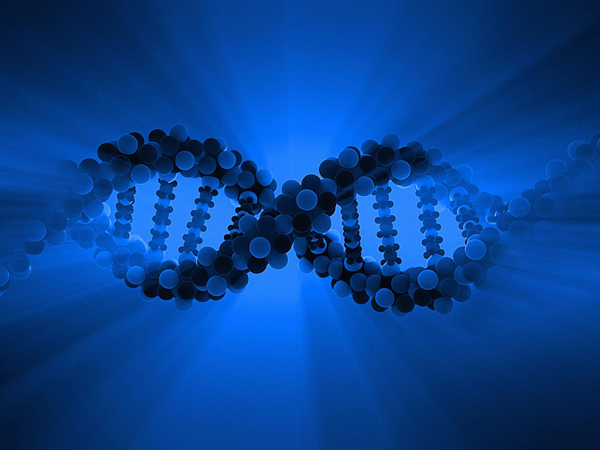Scientists want to be able to genetically engineer humans so that they do not get diseases.
科学家们希望能够改造人类基因从而使他们免于病痛。
That is the conclusion of a new report from two of the world's most elite scientific institutions, which calls for people to be allowed to make modifications to inherited human DNA so that diseases are edited out or treatments are edited in.
这是两家世界顶尖科学机构最新发布的一份报告得出的结论。报告要求允许对人类的遗传DNA进行修改,从而删掉疾病基因或者通过基因编辑治疗遗传病。

Such controversial changes could allow scientists to stop diseases from being passed on to future generations.
科学家可以通过这种备受争议的改变阻止疾病遗传给后代。
The report is a landmark because it in effect amounts to an official sanctioning – by the National Academy of Sciences and National Academy of Medicine – of medical research that looks to edit, remove or add DNA in human eggs cells, sperm or embryos.
该报告具有里程碑式的意义,因为这相当于美国国家科学院和国家医学院正式认可对人类卵子、精子或胚胎进行基因编辑、删除、添加的医学研究。
But opponents have argued that editing for specific problems could begin a trend for making other changes, like adding selected physical features or optimising children so that they are strong or fast.
但反对者认为,针对具体问题进行基因编辑可能引发其他更改的趋势,比如添加选定的生理特征或者优化儿童的基因,从而让他们更强壮或成长得更快。
Gene editing, which effectively allows the precise "cutting and pasting" of DNA, is already used in basic research and clinical studies that involve non-heritable "somatic" cells.
基因编辑可以对DNA进行有效且精准的“剪切复制”,该技术已经应用于非遗传“体细胞”的基础研究和临床研究。
Now the two elite organisations have ruled that gene editing of the human "germline" - inherited DNA - should not be seen as a red line in medical research.
如今,这两家一流机构已经认定不应将对人类“生殖细胞”——遗传DNA——进行基因编辑视为医学研究中的红线。
Future use of germline gene editing to treat or prevent disease and disability is a "realistic possibility that deserves serious consideration", the report says.
报告称,未来利用生殖细胞基因编辑技术治疗或预防疾病和残疾是“切实可行的,值得人们认真考虑”。
However, the two academies point out that the technology is not yet safe enough to justify testing it on the inherited DNA of human patients.
然而,两家机构指出,目前还不足以证明可以运用该技术对人类患者的遗传DNA进行安全的试验。
They add that gene editing for enhancement should not be allowed "at this time" - but do not rule it out completely.
他们还称,“现在”不应允许以优化为目的的基因编辑——但并不完全将其排除在外。
A broad public debate should be held before permitting clinical trials, even those involving non-inherited DNA, for any purpose other than treating or preventing disease, the report says.
该报告称,除了治疗或预防疾病,在允许进行临床试验前应该对所有存在其他目的的基因编辑进行广泛的公开辩论,包括对非遗传细胞的基因编辑在内。
Professor Alta Charo, from the University of Wisconsin-Madison in the US, who co-chaired a study committee appointed by the academies to investigate the wider implications of gene editing, said: "Human genome editing holds tremendous promise for understanding, treating or preventing many devastating genetic diseases, and for improving treatment of many other illnesses."
美国国家科学院与国家医学院机构任命美国威斯康星麦迪逊大学教授阿尔塔沙罗担任一研究委员会的联合主席,以调查基因编辑技术产生的深远影响。阿尔塔沙罗称,“人类基因组编辑技术在了解、治疗或预防许多致命性遗传疾病、提高多种其他疾病的治疗水平方面存在巨大潜力。”
Research that involves modifying inherited genes in human embryos is currently not allowed in the US, and a number of other countries have signed an international convention that prohibits it.
目前,美国还不允许对人类胚胎中的遗传基因进行修改,而其他一些国家已经签署了禁止该行为的国际公约。
Altering germline DNA is also banned in the UK, with one important exception. Parliament has ruled that inherited DNA in the mitochondria can be replaced if they are defective and the cause of devastating diseases that are passed down from mothers to their children.
英国也禁止修改生殖细胞DNA,但存在一项特例。英国议会已经认定,如果线粒体DNA存在缺陷并且会导致母体将致命性疾病遗传给孩子,那么可以将其替换。
Mitochondrial DNA makes up only about 0.1 percent of all the inherited genetic material in a human cell and does not affect key characteristics such as hair and eye colour or personality.
线粒体DNA仅占人类细胞所有遗传物质的0.1%,且不会影响头发、眼睛颜色或性格等关键特征。
Souce: 董静 & 丹妮 from language.chinadaily.com.cn

















